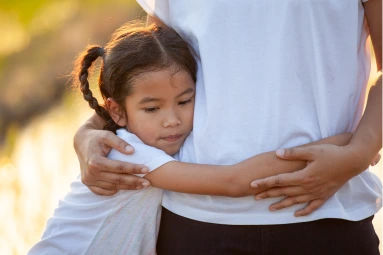- Contact Us Today! (925) 522-8889

Sharing children with an ex can be complicated and often highly charged emotionally. At the start, it may not seem like there is a clear way to achieve balance, ease, and agree on what is in your child’s best interest.
If you are seeking child custody and child support in California, talk with an experienced Divorce lawyer to get your questions answered today.
According to California law, both parents have an equal right to child custody under the law. (Cal.Fam. Code § 3010 (a) (2023).)
In California, custody is divided into two main types; legal and physical custody. Under each type, parents may have joint or sole custody.
Understanding Legal Custody in California
Legal Custody in California refers to the rights of parents to make decisions in a child’s life. Issues that are decided upon include education, medical treatment, and religious upbringing.
In California, joint custody is preferred as it enhances the active participation of both parents in a child’s life. By law, a judge spells out the specific circumstances of sharing decisions and the consequences for failing to do so. (Cal. Fam.Code § 3083 (2023).)
While the law is clear, a judge may leave some details open for parental discretion. For instance, if parents agree on religious upbringing, the judge may leave it to the discretion of the parent who has the child at the time as to when and where the child attends religious services.
Physical custody refers to the laws regarding where a child lives. It also identifies the parents’ responsibility for daily physical care and routines such as disciplining, preparing meals, and bathing. When a parent has sole physical custody, the child lives with that parent. The other parent typically has visitation time, as spelled out in a divorce agreement.
When parents have joint physical custody, the child spends significant time living with each of them. This may not be an exact formula of hour to hour. Practically, joint physical custody tends to work best when parents live close to each other, as the child attends school, after-school events, and sports events in the same location.
Physical and legal custody are different distinct issues. When both parents agree to joint custody both legally and physically, California judges presume this is in the child’s best interests. (Cal.Fam. Code §§ 3002, 3080, 3085 (2023).)
If one parent requests joint custody, a judge may award it, even if both parents do not agree. To evaluate what would be in the child’s best interests, a judge may order a custody investigation. (Cal. Fam. Code § 3081 (2023).)
When parents do not agree on custody arrangements or visitation, a judge decides to resolve their dispute. This can be highly emotional and challenging to navigate. In making these decisions, judges are required by California law to consider all relevant circumstances.
Among the considerations are the child’s health, safety, and welfare. The judge also evaluates the nature and amount of contact the child has with both parents. Judges consider whether there is a history of abuse against the child by a parent or someone a parent is dating or living with. Further considerations evaluate whether either parent has a history of illegal use of alcohol, controlled substances, or prescribed medications. (Cal. Fam. Code §§ 3011, 3046 (2023).)
Establishing child support can be confusing and extremely complicated. In California, child support is based on a complex formula that takes into account the parent’s incomes and how much time each parent spends with the child.
There are specific guidelines for calculating gross income, health insurance, child support, as well as deductions for extreme financial hardship.
Generally, child support lasts until the child turns 18 years old. However, there are some exceptions, such as if a child is still a high-school student or when a child is incapacitated, so they are not able to earn a living. (Cal.Fam. Code §§ 3901, 3910 (2022).)
If you and your ex-spouse do not agree on child custody, the Law Offices of David M. Lederman is here to help. We are here to guide you through the difficult divorce process. Call 925-522-8889 to schedule a consultation.
 (925) 522-8889
(925) 522-8889
© 2026 David M. Lederman Law. All Rights Reserved. | Privacy Policy | Disclaimer | Site Map